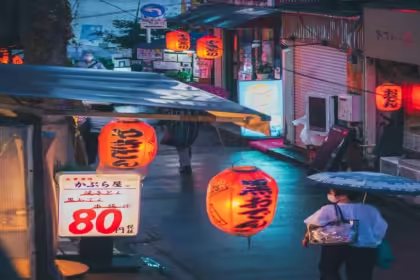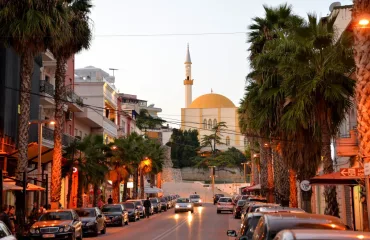
Exploring Japan on a Guided Holiday
Japan, an island nation where centuries-old traditions harmoniously coexist with cutting-edge modernity, offers travellers an experience unlike any other. From the neon-lit streets of Tokyo to the tranquil temples of Kyoto, from the snowy peaks of the Japanese Alps to the serene gardens of Kanazawa, every corner of Japan tells a unique story. For those unfamiliar with Japanese customs, language, and cultural nuances, a guided holiday in Japan is the perfect way to explore comfortably and deeply.
Tokyo: A Dynamic Beginning
Most guided holidays start in Tokyo, Japan’s vibrant capital and largest city. Tokyo can feel overwhelming at first glance, but with an experienced guide, its many layers quickly reveal themselves.
The city’s landmarks are essential stops. Stroll through Shibuya, home to the world-famous pedestrian crossing, and then escape to the peaceful Meiji Shrine, nestled within 170 acres of lush forest. These contrasting scenes, high-tech cityscapes alongside serene spiritual spaces, capture Tokyo’s unique charm. Don’t miss Asakusa, where the historic Senso-ji Temple stands as Tokyo’s oldest Buddhist temple. Walking along Nakamise-dori, the lively shopping street leading to the temple, you can sample traditional treats like taiyaki (fish-shaped cakes filled with sweet bean paste) and browse stalls selling handcrafted goods.
For fans of modern culture, Akihabara is a must-see. Known as the hub of technology, anime, and manga, this district can feel overwhelming without guidance. A local expert helps you navigate the vibrant shops and explains the cultural significance behind Japan’s pop culture phenomenon.
Kyoto: The Heart of Tradition
Kyoto, Japan’s former imperial capital, is where tradition thrives. Known for its temples, shrines, and geisha culture, Kyoto offers a deep dive into Japan’s historical soul. A guided holiday ensures you not only visit these iconic sites but also understand their cultural and spiritual significance.
Highlights include Kinkaku-ji, the Golden Pavilion, shimmering in its pond-side setting, and Fushimi Inari Shrine, famous for thousands of vermilion torii gates winding up a forested hillside. Walking through these gates feels like entering another world, and with a guide, you’ll learn the symbolism behind this sacred site. Kyoto’s Gion district is another gem. Here, traditional tea houses and cobblestone streets evoke a bygone era. Guided groups often enjoy cultural experiences such as tea ceremonies or insights into the life of geiko (Kyoto’s term for geisha) and maiko apprentices, offering a respectful glimpse into this centuries-old art form.
Nara: Japan’s First Capital
Just a short trip from Kyoto lies Nara, Japan’s first permanent capital and home to some of the country’s oldest cultural treasures. The Todai-ji Temple, housing the world’s largest bronze Buddha, is awe-inspiring. A knowledgeable guide shares the story of its construction and its role in Japanese Buddhism. Nara is also famous for its friendly, free-roaming deer, considered sacred messengers in Shinto belief. Feeding them special crackers is a delightful experience that adds a playful touch to your cultural journey.
The Japanese Alps and Kanazawa
A Guided Holiday in Japan often includes the Japanese Alps, a region of breathtaking natural beauty and traditional charm. The mountain town of Takayama enchants visitors with its Edo-period streets, local markets, and seasonal festivals featuring ornate floats. Here, you can savour Hida beef and explore wooden architecture that reflects Japan’s rural heritage. Next, Kanazawa offers cultural depth with Kenrokuen Garden, one of Japan’s most celebrated gardens, and the historic Nagamachi samurai district. Kanazawa is also renowned for its gold leaf artistry, and guided tours often include workshops where you can try this craft yourself. The city’s tea houses and artisan shops provide an immersive cultural experience.
Hiroshima and Miyajima
Many guided holidays include Hiroshima, a city that embodies resilience and peace. The Peace Memorial Park and Museum offer a poignant reflection on the events of World War II and Japan’s journey toward recovery. Guides provide context that deepens understanding and honours the city’s history. Nearby Miyajima Island is home to the iconic “floating” torii gate of Itsukushima Shrine, one of Japan’s most photographed landmarks. At low tide, you can walk up to the gate, while high tide creates the illusion of it floating on water, a magical sight that blends natural beauty with spiritual significance.
People and Culture
One of the greatest benefits of a Guided Holiday in Japan is the chance to engage meaningfully with local culture. Guides not only share historical facts but also explain social etiquette, traditions, and everyday customs that enrich your experience. Whether learning sushi-making in a local kitchen, participating in a tea ceremony, or understanding onsen (hot spring) etiquette, guided experiences help you connect with Japan respectfully and confidently. These interactions foster genuine cultural exchange, making your journey more memorable.
Why Choose a Guided Holiday in Japan?
Japan is a country of contrasts, where futuristic cities coexist with ancient temples, and bustling streets lead to tranquil gardens. Each region offers something unique, from vibrant urban life to serene rural landscapes. A guided holiday ensures you experience this diversity without the stress of navigating language barriers or unfamiliar customs. With expert planning, insider knowledge, and cultural insights, a guided holiday transforms your trip into an immersive exploration. Whether exploring Tokyo’s neon lights, Kyoto’s sacred shrines, or the peaceful Japanese Alps, every moment reveals something extraordinary about this remarkable country.
Ready to Plan Your Guided Holiday in Japan?
At Our Local Tour, we design itineraries that combine iconic sights with authentic cultural experiences. From historical landmarks to hands-on workshops, we make sure your journey is enriching, respectful, and unforgettable. Get in touch today and start planning your Guided Holiday in Japan. Let us help you discover the beauty, history, and traditions of this incredible destination.



